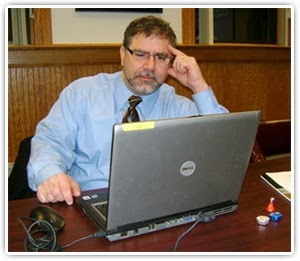Launching a new technology initiative, Superintendent David Quattrone described plans to expand infrastructure, provide students with multiple kinds of devices, and offer training that supports technology as an essential tool for learning. Currently, the uses of instructional technology are mostly centered in labs, rather than available throughout classrooms. The lab approach limits access and tends to separate technology from ongoing lessons. Quattrone said the faculty and students are eager to bring into school the hardware and software tools that are readily available in the world outside. He pointed out that no one device or platform makes sense for all age groups, and that further, whatever we do now will undoubtedly change with experience and innovation.
A rapidly evolving issue, Quattrone added, is data protection. The state has stringent requirements with respect to safeguarding student privacy, and all third party vendors must comply with state and federal regulations regarding data security, confidentiality. "These concerns warrant careful monitoring as we go forward," he said.
 |
| John Krouskoff |
Quattrone then introduced BOCES consultant John Krouskoff. Since February Krouskoff has met with teachers, administrators, and members of the Bronxville School Foundation to assess current practices and identify promising new directions. He gave a presentation,
"Digital Tools to Support Student Learning." Board members Ruth Wood asked how the Board could accelerate expanded access and bandwidth. Quattrone stated that the initial step was to ensure wireless access in every classroom and that was the goal for this summer. However, additional work would be necessary, depending on available funds. Other questions focused on the need to move toward digital textbooks, ensuring access for all students -- including those without computer access at home, and the hardware replacement schedule. Krouskoff said that the current recommendation is for a three-year replacement cycle for Google Chromebooks.
Krouskoff concluded his presentation by emphasizing the need to stay current with technology innovations and identified several next steps:
- Develop a cohort of Bronxville Google Educators
- Allocate resources to encourage teacher modeling of anytime/anywhere learning
- Develop units of study that embed the purposeful use of technology
- Establish teacher-centered professional learning communities
- Pilot the use of Google Apps with specific cohorts of students.
Quattrone reported that one promising early result is that over forty people have volunteered to become Google certified teachers, participating in the program on a voluntary basis. Krouskoff's work will continue through next year, supplemented by other training resources.

